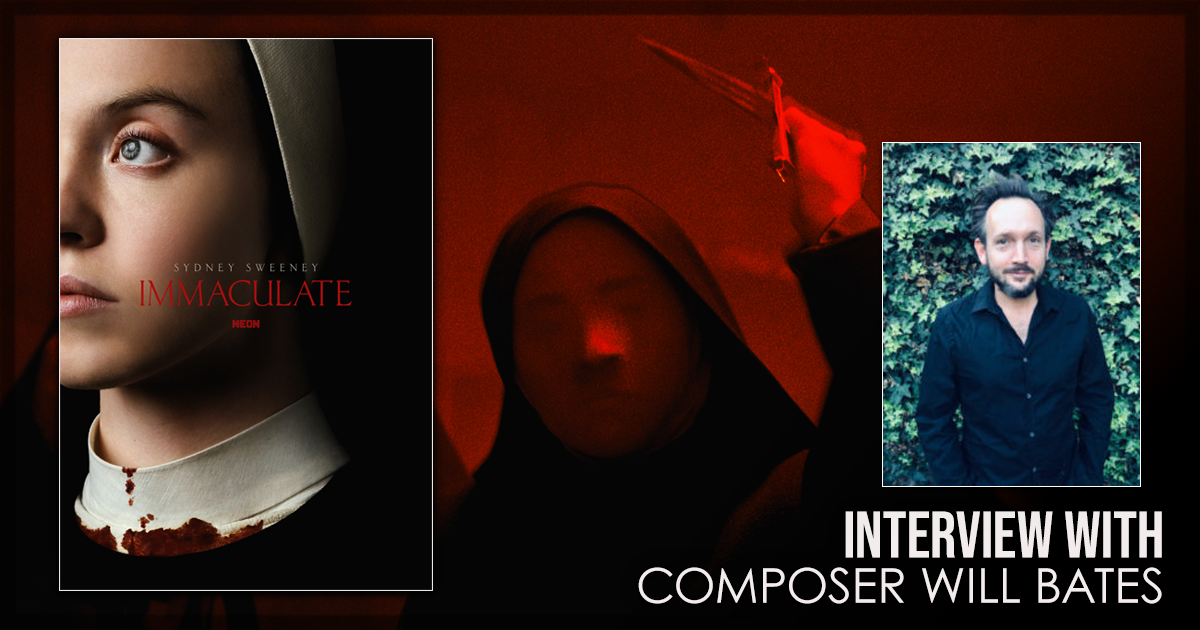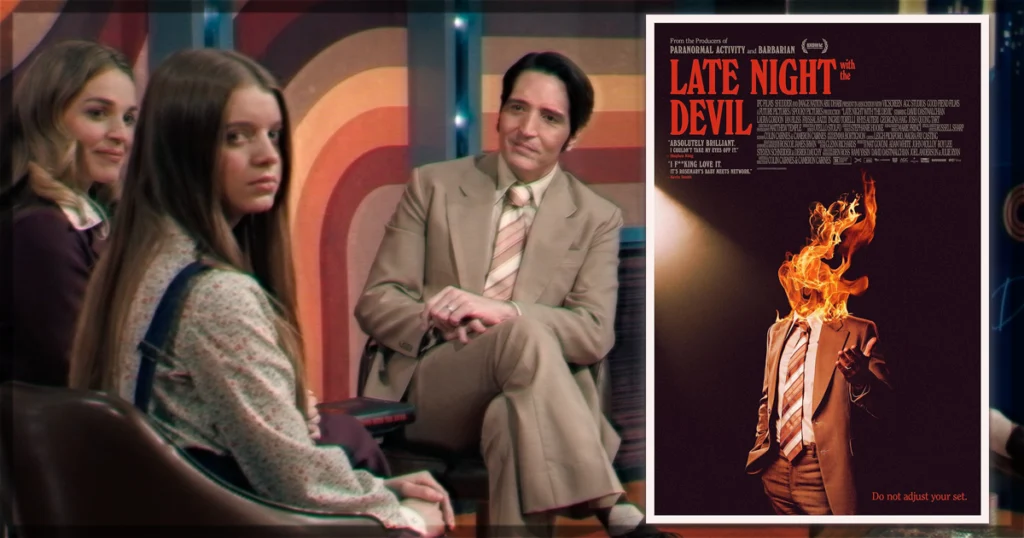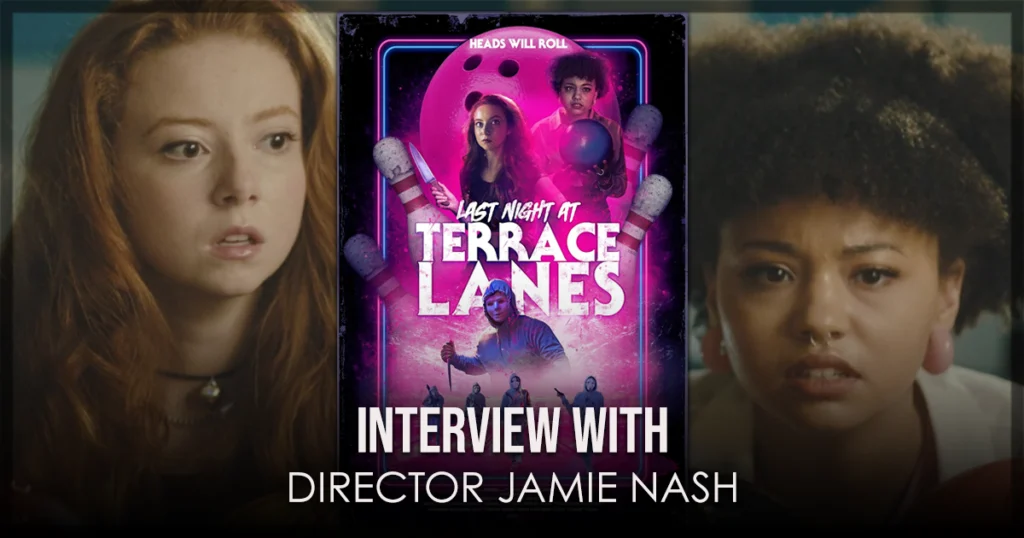Immaculate recently premiered at SXSW before coming to theaters all over. The movie, from director Michael Mohan and writer Andrew Lobel, is a psychological horror film years in the making. The idyllic Italian countryside warmly embraces Cecilia (Sydney Sweeney), a woman of deep faith who believes she was saved from death as a child for a reason, as she accepts a new role at a convent that cares for nuns in their final days. However, the tranquility of her surroundings masks a sinister reality and lots of not-so-heavenly secrets. The music is crucial to the film’s horror, helping to make the story even more eerie. At SXSW, we sat down over Zoom with Immaculate’s composer, Will Bates, to discuss scoring the world of Sister Cecilia.
Bates had a ton of interesting things to share about Immaculate, including how a piano he found at an estate sale that once belonged to General Phineas Banning wound up being part of Sister Cecilia’s sound. The massively talented composer talked about collaborating with director Michael Mohan (and Sydney Sweeney!) and also about his own horror-family roots. Will Bates shared how his high school Latin came into play for this project and some unique instruments, including a zither, that helped bring the movie to life.
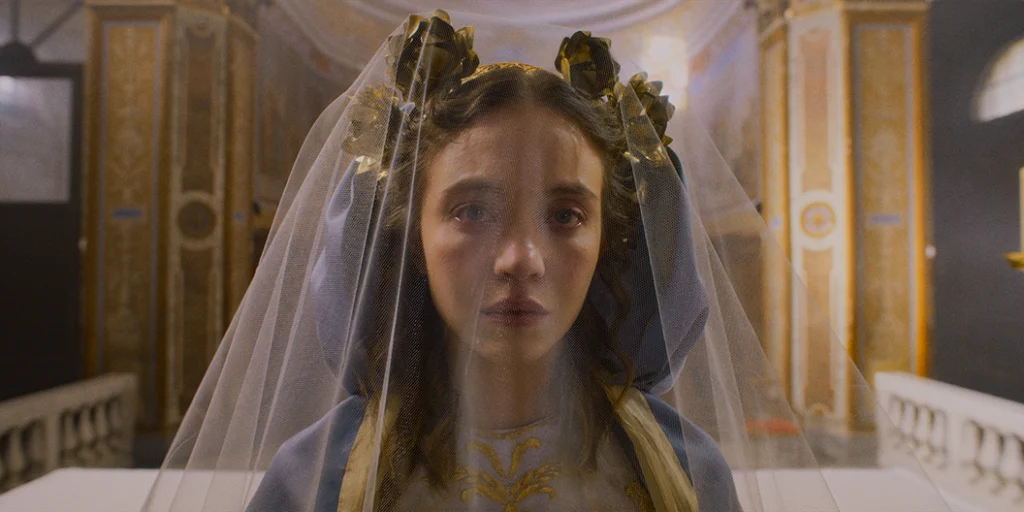
The Interview with Immaculate composer Will Bates
[Editor’s note: This interview has been lightly edited for clarity.]
Ayla Ruby: Hi, again.
Will Bates: Hi.
Ayla Ruby: So, I’m excited to talk, and so you’re traveling quite a bit, right? You were just at South by Southwest, or are you still there?
Will Bates: I was only there for two days, unfortunately. I would’ve loved to have stayed there a bit longer, but it was a quickie.
Ayla Ruby: So I’m excited to talk, we’re going to talk about Immaculate and other things, too, hopefully.
Will Bates: Great.
On what drew him to Immaculate
Ayla Ruby: So, I’d love to talk about how you kind of came onto this project, and what about this story was really appealing to you?
Will Bates: Well, I worked with Michael Mohan and Sydney [Sweeney] on another movie called The Voyeurs a couple of years ago, and we really hit it off. They’re both wonderful people to collaborate with. Michael and I have become good friends, and when this project came across his desk, he, of course, which I believe he was brought on by Sydney, he turned to me and I, of course, was just like, “This sounds incredible. I’d love to be involved.”
Will Bates: I guess the first thing that I had to do, it’s funny, normally with composers, of course, we tend to kind of come in at the very end, and sometimes, every now and again, there’ll be a project that comes along where you can kind of be involved earlier, and that was the case with this one. So, I was able to read the script and have lunch with Mike and really talk about what we thought the tone of the film should be and share playlists and stuff like that.
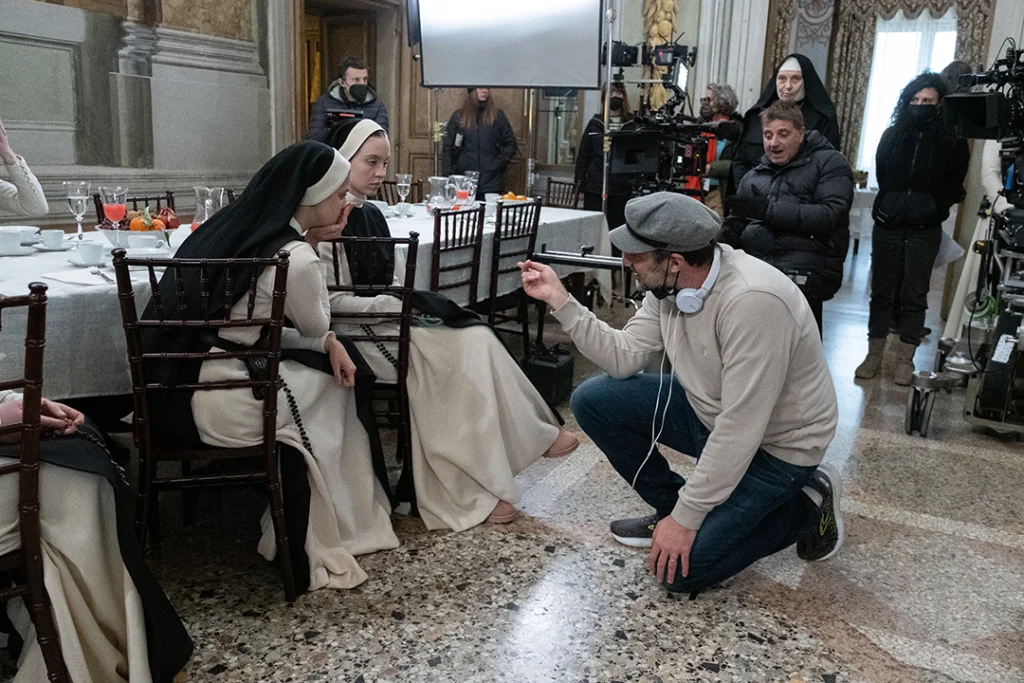
Will Bates: And the first thing that I had to write was actually a hymn, because there’s a scene in the movie where the nuns are all singing in the convent, and they needed the piece of music to be written for production. So, that was this unusual first task that I had to kind of write this Latin mass, basically. I wrote a Te Deum, I was like, “What about Te Deum? It’s kind of like an ancient prayer to God. How about we do that?” He was like, “Great, do it.”
Will Bates: So, I have terrible high school Latin grammar. I had some help from a friend and kind of changed the text a little bit and wrote this piece, and then that was kind of the first thing that happened, and then it certainly influenced the rest of the project as well, but the story of this movie is… Were you at the premier? Have you seen the film?
Ayla Ruby: I wasn’t. I’m going to go to one of the New York ones soon.
Will Bates: Well, not to give anything away, but the way that the story that Sydney’s character, Sister Cecilia, the journey she goes on is quite shocking and amazing and very current, and I feel like I was just very honored to be part of this whole project, so it’s something else.
On Sister Cecilia’s journey in Immaculate
Ayla Ruby: I’m glad you mentioned her journey, because that’s something I wanted to talk about. So, can you talk about scoring her? How does a score kind of complement her journey? Does it evolve? How does that work?
Will Bates: That’s a great question. One of the things that we had to establish early on in post, not so much during production, was what is the POV of the score. Whose story? Are we witnesses of her story, or are we really going to do this from her point of view? And we decided on the latter to really start by having this feeling of reverence for God and for this place that she’s found herself in that there’s this sort of majesty and this awe that she has for being chosen, let’s say, to be in this convent, which I don’t think I’m giving anything away to say that.
Ayla Ruby: I know it’s in Italy, that’s in all the synopsis.
Will Bates: That’s right, it’s in just outside of Rome, and she’s from just outside of Detroit. I don’t think her character has ever traveled outside of the US, so she’s very, “It’s amazing, magical.” So, that’s definitely in the music, and we wanted there to be this kind of familiarity with that ecclesiastic tone, that feeling of the Catholic Church, but also just something that’s slightly off. There’s something slightly wonky about it, that was part of the brief.
Will Bates: And then as we go on, the score evolves and you start to very much from her point of view, you start to discover more about this sect of the Catholic Church and their motives aren’t entirely godlike, I guess, something like that. So, that’s definitely reflected in the score. So, it was really fun to take this feeling of majesty and then really twist it and turn it into something that goes to a very dark place. I feel like that arc is very much present in the film, and like I said, the ending is so extraordinary, and there’s elements…
Will Bates: I suppose when you see the movie, you can consider this in the back of your mind, but that hymn appears at the very end in a very different way. We kind of choose some of the same tones that we established early on and then kind of really flip them upside down.
Ayla Ruby: So, it’s almost a full circle moment there.
Will Bates: Kind of, yeah.
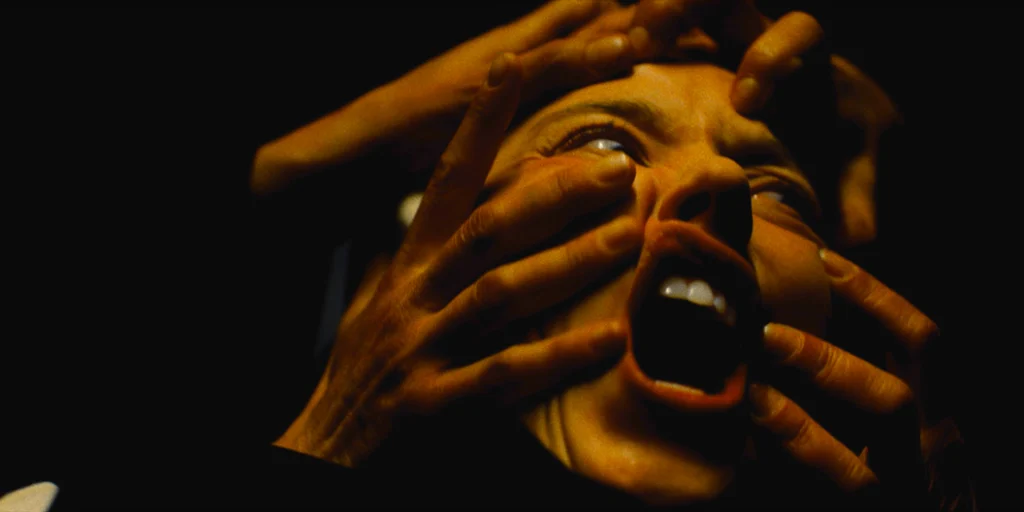
On collaborating with Michael Mohan on Immaculate
Ayla Ruby: So overall, you mentioned you guys shared a playlist. There was kind of this shared language almost to getting this project off the ground. How do you translate the language of music for someone like yourself who eats, sleeps, breathes music to someone who eats, sleeps, breathes film? How do you approach that together?
Will Bates: That’s a great question. I feel like every filmmaker is different, every project is different. Often, it’s sometimes a real advantage to work with someone who you’ve already worked with. There’s an instant kind of trust. We know each other, we’re mates. I don’t feel shy or embarrassed or worried about making… I’m kind of showing him my dirty laundry most of the time. “What about this sketch? I know it’s kind of rough or whatever,” but Mike is someone who knows what something can turn into and appreciates the process and always would just be so incredibly just very giving in terms of his notes and very encouraging and very freeing. And I think also with horror, there are things that you have to achieve, you have to be scary, you have to do this, but there are so many ways to get there.
Will Bates: And I think as a filmmaker, he really understands that and really appreciates that, and you can really see that on the screen with this film that it’s not all about…(scary noises) That’s in there, but there’s a lot more artistry in this. And I think that having that sense of trust and being allowed to fall off the bike every now and again and not be a hugely damaging experience is massive for a composer, because if you start doing anything based on fear of getting it wrong, I feel like that’s maybe when the art doesn’t necessarily come out.
Will Bates: We made that playlist together and he and I talked about it a few times. We talked about [Dario] Argento and Suspiria and other things like that, and then honestly in the end, we just kind of threw it all out. Nothing like that seemed to really make any sense for this film.
Will Bates: We talked about a lot of scores for early-’70s horror and stuff like that, movies that we’re both fans of, but nothing really stuck, it seemed out of all of that stuff, and because of that hymn, that first thing that I had written, I think we were really lucky in a way that I had stumbled on this language, and we just started to use that as a building block for everything else.
Will Bates: Another thing that happened during production is that there’s another scene very early on when Cecilia arrives at the convent, when there’s a group of nuns playing music. That’s just what it says in the script. Cecilia leaves the car, there’s a courtyard, and they’re playing music. And he was like, “What do you think they should be playing? You got any ideas?” And I was like, “Yeah, what about a psaltry and a hurdy-gurdy, and a zither?” And he was like, “Great,” and sent someone out into Rome and bought those instruments, and then there they were playing them. Then, I had to go out and get them as well and started writing sketches using those instruments. So, already we had established these very broad instrumentation choices, which was also really helpful to start building the language. It’s cool.
On instrumentation choices in Immaculate
Ayla Ruby: In addition to that, I think I read somewhere that there were harpsichord and obviously church organs going along with the theme. Was that just a natural-
Will Bates: Yeah, there’s the scene that I wrote the hymn for, there’s a church organ in place, there’s another scene where there is indeed a harpsichord playing, and we absolutely use the fact that those are on camera as jumping off points. There’s organ featured on the score, again, things that you associate with the Catholic Church that I think everybody understands what those signposts mean, but I wanted them to just feel off.
Will Bates: And I actually started writing everything on this weird thing called the Hungarian zither that I bought for this job, which has a crazy scale. It’s like, I don’t know, 40 strings and really the way that you kind of slide your finger up and down this key bed, but the scale is very unusual, and I was kind of using that to write the melodies, and I think that helped make everything feel slightly weird. And again, establishing that stuff, it just meant that all of our earlier conversations about other influences were like, “Nah, keep going down this road. This is interesting.” It’s cool.
Ayla Ruby: It all came down to the zither.
Will Bates: It did.
On what is appealing about working in horror
Ayla Ruby: You talked a little bit about your horror work. You’ve done a lot of horror work. I think you’ve done TV horror, you’ve done movie horror. Why horror? Because I’ve read you have a personal history with it.
Will Bates: I do. It’s funny, I feel like the horror thing only really started happening for me a couple of years ago, but my parents were both Hammer horror actors in the 1970s, and they met on the set of a movie called Dr. Jekyll and Sister Hyde, where my father turned into a woman and went on killing sprees murdering prostitutes, and my mother played a prostitute. That’s how they fell in love.
Ayla Ruby: True love.
Will Bates: I’ve watched my parents die in all sorts of ways over the years, and ever since I was a kid, those movies have been in my household, and I guess it’s kind of normal. I wouldn’t say that I’m hugely influenced by it musically or anything like that. I think the big takeaway from all of that, from witnessing them being around their friends that were making those movies, and the big takeaway was how much fun they were having doing it.
Will Bates: My godfather is a guy called Jimmy Sangster, and he was the director of a lot of the movies that my father did, and they’re just best mates. And I was always very like, “I want to do that. They’re having fun. This is cool,” and I think that was more of an introduction to filmmaking as opposed to horror necessarily. I’m very grateful to work a lot in this genre because like I said, it’s so much fun and you can really push the boundaries and you can be experimental, and I think it’s kind of expected nowadays to do something a bit off the beaten path, which is challenging and also just very, and it can be a lot of fun in the room.
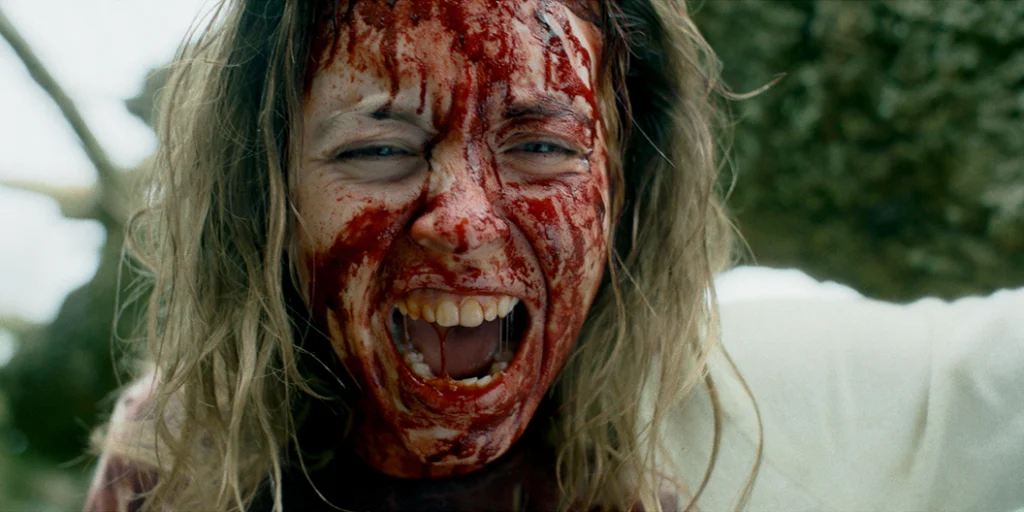
On if scoring TV is different than scoring Film
Ayla Ruby: So, obviously this is a film score, you’ve done TV, like I just mentioned. Is there a different approach or is it similar when someone’s scoring a TV show versus scoring something like this giant project?
Will Bates: I tend to approach it all the same. Even if it was a documentary, even if it’s a comedy, I still have the same process at the beginning of a project where I sit in front of the piano and I have to have this sort of eureka moment when I stumble on the melody or chord sequence for a character or a situation that just belongs to that project and couldn’t live anywhere else. Whether or not the job ends up being a piano project or not, I feel like that’s always the beginning, and then I kind of move on from there, but that’s always the same process.
Will Bates: And I think with television, of course, there’s a difference of scale and you can plant the seeds of a theme very early on, and that’s quite fun for me to be able to hide the little Easter eggs early on in a season and then they culminate later on. Of course, you do that in movies as well, but there’s just a difference to both in that regard. And with documentaries, there tends to just be a lot more music that has a slightly different role, tends to be more in the background. Ultimately, I still treat everything as a story. I feel like I’m still always in the service of telling the story and the narrative.
On challenges and using General Phineas Banning’s piano for Immaculate
Ayla Ruby: Because I know we’re getting close on time, was there anything that you haven’t talked about on this project that was just really either challenging or kind of gratifying or just interesting that you were happy you pulled off?
Will Bates: I think the Latin part of it was… Although, that was right at the beginning, that was kind of a crazy thing. And I worked with this wonderful group of singers in London called the Hi Lo Singers, and they were extraordinary. About halfway through, my wife had been going to a lot of estate sales here in LA and we went to this one estate sale, and there was this piano sitting in the corner that was for free, and they told me that they were going to take a chainsaw to it that afternoon to get it out of the building. And they were like, we can’t figure out how to get it out of here and I was like, “I think I know a guy who knows how to get the legs off.” It was a 19th century square grand piano.
Ayla Ruby: Oh, wow.
Will Bates: And I was just horrified by this notion that the thing-
Will Bates: … To be destroyed. So, I sent a guy over to go and pick it up, and he brought it back to the house, and I had a piano tuner look at it, and he’s just like, “This thing belongs in a museum. There’s no way you’re ever going to be able to tune it, but good luck.” And it’s very unusual, because it’s right before they learn how to put hops vertically.
Will Bates: So, it’s a grand piano, but the hops are kind of on top of one another, which means that it’s really good for doing weird stuff with, like piano stuff. So, the whole first act of the movie is scored with that thing, and I’ve got ebows on it, I’ve got a mallet, I’m scraping it with my fingernails. This piano was owned by General Phineas Banning, who has a Banning House Museum, and he built Long Beach, I guess, and San Pedro and stuff.
Will Bates: And I texted all of this to Mohan and he was like, “When did you record this piano?” I’m like, “I did it yesterday.” It’s like, “It was Phineas Banning’s birthday yesterday.” It was just like, whoa.
Ayla Ruby: Whoa.
Will Bates: It’s creepy. So anyway, all of that’s on the score. So, I have an area in my largest studio that we call the Orphanage, which is where all the gear that I buy just for a project and leave goes to die, and this thing is going to end up in the orphanage. I basically can’t ever get rid of it. I can’t record it again, because it just sounds like Sister Cecilia to me. It doesn’t really sound like anything else. I thought that was a good story.
Ayla Ruby: That’s an amazing story, thank you.
Will Bates: You’re welcome.
On Larry Fessenden’s movie Blackout, about a werewolf
Ayla Ruby: To close out, I guess, is there anything else you want people to know?
Will Bates: Well, there’s one other thing that’s coming out that’s crazily timed to have a movie called Blackout that’s a Larry Fessenden horror movie here. I’m saying that I don’t do just horror, double horror weekend. No, Larry’s a wonderful director. I’m very fortunate to count him as a good friend and also a collaborator, and he’s made a werewolf movie that’s phenomenal, so check that one out, too.
Ayla Ruby: Awesome. Well, thank you so much.
Will Bates: Thank you. Thank you for having me.
Visit Will Bates’ website to learn more about his work.
Immaculate is now in theaters.
Michael Mohan and Sydney Sweeney’s Immaculate is now playing in theaters. Let us know what you thought of the film and the interview @MoviesWeTexted.
You might also like…
‘Late Night With the Devil’ Review: David Dastmalchian’s Gripping Descent into Horror
‘Last Night at Terrace Lanes’ – Interview with Director Jamie Nash

